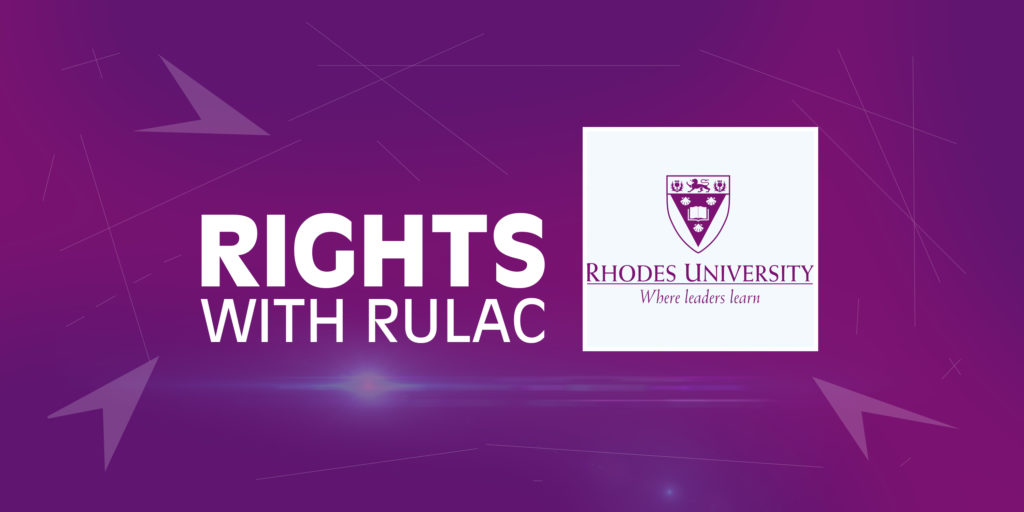By SIZIPHIWE YUZE
What happens when you get injured, ill or die at work?
Quite often people get injured, they fall ill, and they die as a result of their work. Are these people protected by South African law? The simple answer is yes. The Compensation for Occupational Injuries and Diseases Act (COIDA) provides for compensation for disablement caused by occupational injuries or diseases sustained or contracted by employees in the course of their employment, or death resulting from such injuries or diseases.
There is a Compensation Fund (“the Fund”) which compensates employees. Employers pay into the Fund once every month. The amount they contribute is determined by the Compensation Commissioner, depending on a number of factors. It is important to note that employees do not contribute to this Fund, and employers may not deduct money from an employee’s salary or wages for this purpose. However, certain employers like national and provincial departments, certain local authorities, and employers insured by a company other than the Compensation Fund do not have to contribute to the Fund.
Who can claim from the Fund?
Any person who is employed or being trained by the employer who is injured at work or gets sick directly as a result of his/her work can claim. There are, however, certain types of employees who may not claim from the Compensation Fund. These include domestic workers in private households, members of the South African National Defence Force and South African Police Service (they have their own fund), an independent contractor, and employees who work outside of South Africa for longer than 12 months at a time.
In what circumstances can employees claim?
Employees can claim if they are injured or fall ill in the course and scope of their employment. Employees can claim if they are injured in an accident which takes place while they are doing their work; compensation is paid for temporary or permanent disabilities that lead to a loss of earnings. Employees can claim for diseases contracted at work as a direct result of the work they do. This is called an occupational disease or illness, and is caused by substances that the employee was exposed to in the workplace. If an employee dies as a result of an injury or disease that arises during the scope and course of their employment, then the dependants of such employee may claim from the Fund. All medical expenses of the employee will be paid for up to two years from the date of the accident or diagnosis of the disease.
There is no guarantee that compensation will always be paid out in terms of COIDA. No payment will be made for claims that are made more twelve months after the accident or death, or twelve months after the disease is diagnosed. No compensation will be paid if an employee is off work for three days or less. No payment will be made if the accident was caused by the employee’s own misconduct, unless the employee was seriously injured or died from the accident. There may be no payment if the employee unreasonably refuses medical treatment.
What is the impact of COVID-19 on COIDA?
We are in the midst of a worldwide pandemic of Coronavirus or Covid 19. On 20 March 2020 the Compensation Commissioner issued a Notice on Compensation for Occupationally Acquired Novel Corona Virus Disease (Covid 19). The notice came into effect on 20 March 2020, and recognises occupationally acquired Covid 19 as a disease under COIDA. A diagnosis for occupationally acquired Covid 19 relies on the following: occupational exposure to a known source of Covid 19; a reliable diagnosis of Covid 19 as per the World Health Organisation (WHO) guidelines; an approved official trip and travel history to countries or areas of high risk for Covid 19 on work assignment; a presumed high-risk work environment where transmissions of Covid 19 are common; and a chronological sequence between the work exposure and the development of symptoms.
In circumstances where there is a suspected, unconfirmed case of occupationally acquired Covid 19 and an employee is placed under self-quarantine on recommendation by a registered medical practitioner, then the employer is liable for remuneration for the days of absence. For confirmed cases and where the Compensation Commissioner has accepted liability, temporary total disablement shall be paid from the date of diagnosis for up to thirty days. In the event of death arising from occupationally acquired Covid 19, the Commissioner must compensate the employee’s family for the reasonable burial expenses and provide the surviving spouse’s and dependants’ pensions where applicable.
On reporting occupationally acquired Covid 19, the Compensation Commissioner must be furnished with certain information and medical records, and online claims should be submitted to the Compensation Fund on COVID19claims@labour.gov.za. The Compensation Commissioner shall consider and adjudicate upon the liability of all claims, and the medical officers in the office of the Commissioner are responsible for medical assessments of the claim and the confirmation of the acceptance or rejection of the claim.
- Siziphiwe Yuze is an attorney at the Rhodes University Law Clinic
Rhodes University Law Clinic helping you
The Rhodes University Law Clinic strives to improve access to justice through the provision of free legal services to indigent people in most areas of law. Currently the Law Clinic is closed due to lockdown regulations, so is unable to see clients at either its New Street offices or at the Assumption Development Centre as usual. The date of the re-opening of the office is uncertain at this time.
Rhodes University Law Clinic
41 New Street, Grahamstown
Telephone 046 603 7656
lawclinic@ru.ac.za


